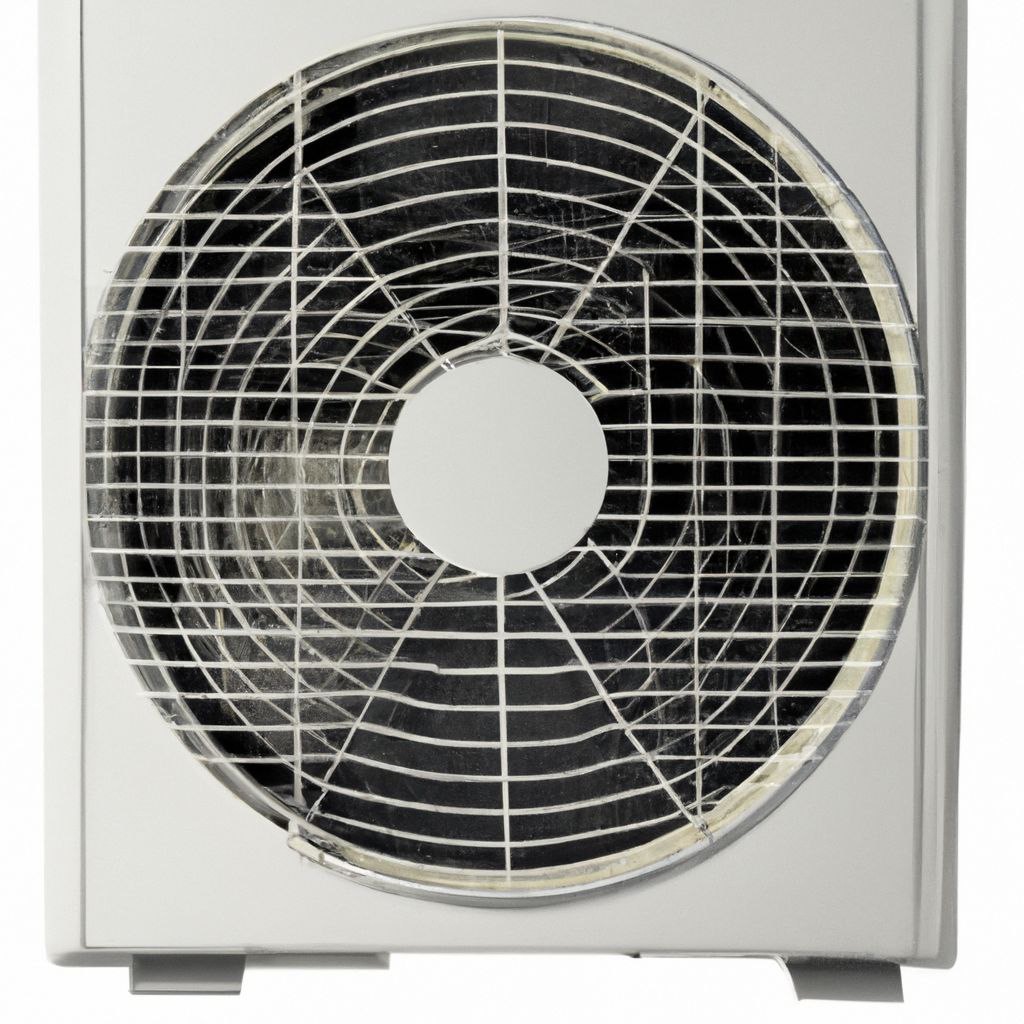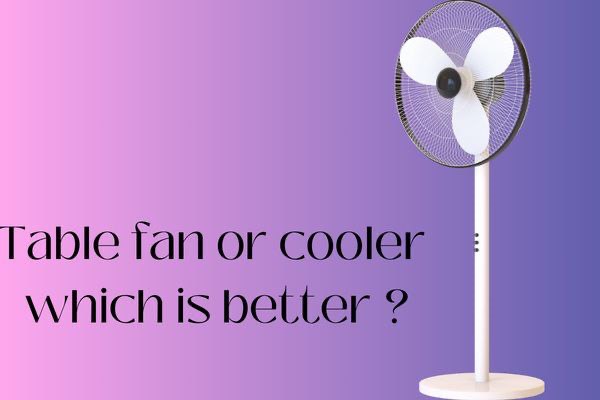Introduction of 3 things you must know which is better table fan or cooler?
There are popular choices table fans and water coolers, each offering their own set of benefits. But which is better table fan or cooler ?Stay cool and comfortable this summer with the perfect cooling solution for your home. With rising temperatures, it’s important to find the right appliance that will keep you refreshed during those sweltering days and nights.In this blog post, we’ll delve into the differences between these cooling devices, discuss their effectiveness in cooling a room, and help you make an informed decision about which option suits your needs best. So let’s dive in and discover whether a table fan or a cooler is the ultimate weapon against summer heat!
What is the difference between a table fan or cooler and tower fan ?
Table fan or cooler and tower fan are two distinct types of cooling devices that serve different purposes.Which is better table fan or cooler ?
A water cooler, also known as an evaporative air cooler or swamp cooler, works by utilizing the natural process of evaporation to cool the surrounding air. These devices typically consist of a water tank, a pump to circulate the water, and a fan that blows air over moistened pads. As the air passes through these pads, it becomes cooled and is then circulated back into the room. Water coolers are effective in dry climates where humidity levels are low.
On the other hand, tower fans and table fans operate on a different principle altogether. They work by creating airflow within a space using rotating blades or impellers. By circulating air around the room, they help in dissipating heat from your body through convection, providing you with a refreshing breeze.
In terms of size and portability, water coolers tend to be larger and bulkier compared to tower fans/table fans which can be easily moved around as per your convenience.

Is it worth it to buy a cooler ?
With summer approaching and temperatures on the rise, many people are considering investing in a cooling solution for their homes. One popular option is a water cooler. But is it really worth it to buy one?Which is better table fan or cooler ?
- Water coolers offer several advantages over traditional fans or air conditioners. They use evaporative cooling technology, which means they work by evaporating water into the air, reducing the temperature in the process. This can create a more comfortable environment without consuming as much energy as an air conditioner.
- Additionally, water coolers can also help improve indoor air quality by adding moisture to dry environments. This can be beneficial for individuals with respiratory issues or allergies.
- However, there are some factors to consider before purchasing a water cooler. They require regular maintenance and refilling of water tanks. Additionally, they may not be as effective in areas with high humidity levels since the evaporation process becomes less efficient in moist conditions.
- Furthermore, if you live in an area with severe heatwaves or extremely high temperatures, a water cooler alone may not provide sufficient cooling power. In such cases, combining it with other cooling solutions like fans or air conditioners might be necessary.
- Whether buying a cooler is worth it depends on your specific needs and circumstances. If you live in an area with moderate heat levels and want an energy-efficient solution that improves indoor air quality while providing some relief from the heat, then investing in a water cooler could be worthwhile for you.
Remember to assess your requirements carefully and consider factors such as climate conditions and personal preferences before making your decision!
Can water cooler cool a room ?
Can a water cooler really cool a room? Many people wonder if investing in a water cooler is worth it when it comes to cooling down their living space. Let’s explore this question further.
- Water coolers, also known as evaporative coolers or swamp coolers, work by using the process of evaporation to provide cooling. They draw warm air from the surrounding environment and pass it through moistened pads that contain water. As the air passes through these pads, the water evaporates, removing heat from the air and lowering its temperature.
- However, it’s important to note that the effectiveness of a water cooler depends on factors such as humidity levels and room size. In areas with high humidity, where there is already moisture in the air, a water cooler may not be as effective at cooling compared to drier climates.
- Additionally, while a water cooler can help create localized cooling near where it is placed, it may not be able to effectively cool an entire room like an air conditioner would. The cooling effect tends to diminish with distance from the unit.
- If you live in a dry climate and have realistic expectations about its limitations, a water cooler can provide some relief during hot summer months. However, for larger spaces or areas with high humidity levels, other options like fans or air conditioners might be more suitable for achieving optimal comfort.
How much does it cost to run a fan 24 hours a day ?
One common concern when considering running a fan 24 hours a day is the cost. After all, we want to stay cool without breaking the bank! So, let’s take a closer look at how much it actually costs to run a fan continuously.
- The cost of running a fan depends on various factors such as the wattage of the fan and your local electricity rates. On average, an electric fan uses around 50-100 watts per hour. If we assume an average usage of 75 watts per hour and an electricity rate of $0.12 per kilowatt-hour (kWh), we can calculate the cost.Running a 75-watt fan for 24 hours would consume 1.8 kWh (75 x 24 = 1800 watt-hours /1000 =1.8 kWh). Multiplying this by our assumed electricity rate ($0.12/kWh), we find that it costs approximately $0.22 per day to run a fan continuously.
- While this might not seem like much, keep in mind that these calculations are based on averages and do not account for fluctuations in energy rates or differences in individual usage patterns.
- It’s also important to consider energy-efficient options like modern ceiling fans or fans with adjustable speed settings, which can help reduce overall energy consumption and lower operating costs even further.
Remember that while running your fan constantly may provide continuous airflow and cooling benefits throughout the day, you may also benefit from using your fan strategically during specific times or combining it with other cooling methods to optimize comfort while minimizing expenses.
Weighing the cost against personal comfort preferences will help determine whether running a fan constantly is worth it for you.
Which type of cooler gives more cooling?
When it comes to cooling options, there are various types of coolers available in the market. Each type has its own advantages and disadvantages, but if you’re specifically looking for maximum cooling, two popular options stand out: air coolers and evaporative coolers.
- Air coolers work by pulling warm air from the room through a moistened pad or filter. As the air passes through the wet surface, it cools down and is then circulated back into the room. These coolers are effective in hot and dry climates as they add moisture to the air while lowering its temperature.
- On the other hand, evaporative coolers use a similar principle but with an added advantage. These coolers utilize evaporation to further enhance their cooling capabilities. By circulating water over pads or filters that contain fans, evaporative cooler units can achieve significantly lower temperatures than traditional air coolers.
- The effectiveness of both types of coolers depends on factors such as humidity levels and room size. In areas with high humidity, an evaporative cooler may not be as efficient since it adds moisture to already humid air. However, in drier environments, these units excel at providing powerful cooling.
Choosing between an air cooler and an evaporative cooler depends on your specific needs and climate conditions. It’s important to consider factors such as humidity levels and desired cooling capacity before making a decision.
Do fans help to cool a room ?
Do fans help to cool a hot room? This is a common question that many people have when trying to beat the summer heat. The answer is yes, but it’s important to understand how fans actually work.
- Fans create airflow by circulating the air in a room. When you feel the breeze from a fan, what you’re experiencing is evaporative cooling. As the air blows across your skin, it helps to increase evaporation and provide some relief from the heat.
- However, it’s important to note that fans do not lower the temperature of a room. They simply make you feel cooler by creating air movement and enhancing evaporation. So if you’re looking for something that can actually lower the temperature in a hot room, then you may want to consider using an air conditioner or a water cooler.
- That being said, fans can still be very effective at keeping you comfortable during hot weather. They are energy-efficient and cost-effective compared to other cooling options like air conditioners or coolers. Plus, they are portable and easy to use in any space.
While fans don’t technically cool down a room, they can certainly help make it more bearable during hot days. So if lowering your body temperature and feeling refreshed is your main concern, then investing in a good quality fan might be just what you need.
Frequently asked questions
Q 1.Do coolers use a lot of electricity ?
ANS .Coolers vary in their energy consumption based on factors like size, type, and usage patterns, but generally, they are designed to be energy-efficient and do not consume a significant amount of electricity.
Q 2.How many watts a fan vs cooler ?
ANS.Fans typically consume around 20 to 75 watts, while air coolers can vary in wattage from 100 to 300 watts depending on their size and cooling capacity.
Q 3.What is the most energy efficient fan type ?
ANS. The most energy efficient fan type is generally considered to be a ceiling fan, which typically consumes around 15 to 90 watts of electricity depending on its speed and size.
Q 4.Is it ok to keep desk fan on all night ?
ANS. It is generally safe to keep a desk fan running all night, but consider factors like noise level, energy consumption, and your personal comfort for a good night’s sleep.
Q 5.Does putting ice in from of a fan work ?
ANS. Putting ice in front of a fan can create a cooling effect by blowing cooler air, but it’s not as effective as using an air conditioner or specialized cooling device due to limited cooling capacity.
Q 6. Where is the best place to put a fan to cool a room ?
ANS. The best place to put a fan to cool a room is near a window or doorway, facing towards the center of the room to create air circulation. Placing it on the floor or a raised surface can help distribute the airflow evenly
Conclusion
In the battle between a table fan and a cooler, both have their own advantages and limitations. It ultimately depends on your specific needs and preferences.
Table fans are portable, affordable, and easy to use. They provide instant cooling by circulating air effectively in a localized area. If you’re looking for a cost-effective solution that can be easily moved around your home or office, then a table fan might be the right choice for you.
On the other hand, coolers offer more extensive cooling capabilities as they utilize water evaporation to bring down temperatures in larger spaces. They are ideal for hot and dry climates where humidity levels are low. However, they require regular maintenance and consume more electricity compared to fans.
If you’re concerned about energy consumption or want an environmentally friendly option, then table fans are definitely the better choice. They consume significantly less power than coolers when operated continuously.
It’s crucial to consider factors such as climate conditions, room size, portability requirements, budget constraints, and personal preferences before making a decision.
If you liked the above article and want to read more such articles then follow me.



